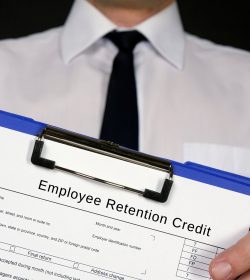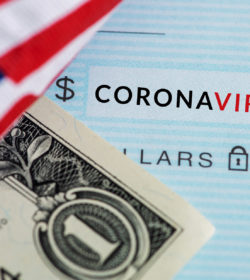On March 27, 2020, the Coronavirus Aid, Relief and Economic Security (CARES) Act was signed into law. Notably, several provisions of the CARES Act deal with retirement accounts and offer relief to retirement account owners and/or beneficiaries in a variety of ways.
We’ll answer some top-of-mind questions you may have about this aspect of the new law, as well as provide an understanding of Coronavirus-Related Distributions and how they could impact you.
Can I take money out of my IRA or company retirement plan to help me offset expenses resulting from the COVID-19 pandemic? If I do, are there penalties and is the distribution taxable?
Broadly speaking, if you, your spouse or a dependent has been diagnosed with COVID-19, or if you experience adverse financial consequences as a result of the coronavirus, you may qualify to take a Coronavirus-Related Distribution. Such distributions come with a variety of benefits, including:
- There is no 10% penalty for distributions for those under age 59½.
- Employer-sponsored retirement plans do not have to withhold 20% federal income tax.
- The distribution can be rolled over (repaid) to an IRA or company retirement plan for three years from the date the distribution was taken, eliminating the income tax bill that would otherwise apply.
- By default, the income from the distributions will be split evenly over 2020, 2021and 2022.
If I repay my IRA or company retirement plan within the three-year window described above, how do I get the taxes back that I’ve already paid on that distribution?
You’d need to file amended returns to claim a refund for any years in which the distribution had previously been included in your income. For example, if you take a distribution now and opt to spread the income over three years, and then repay it in November 2022, you would need to file an amended return for 2020 and 2021 (because tax returns for those years already will have been filed).
I would rather report the income from the distribution in 2020 alone instead of spreading it over the next three years because my income is going to be down this year due to the coronavirus. Is that allowed?
Yes, you are allowed to make an election to include the entire Coronavirus-Related Distribution in 2020 rather than splitting the income over three years (which may not be a bad idea if your income is significantly lower this year as a result of the COVID-19 crisis, or some other reason).
Can I just take a loan from my company retirement account rather than taking a taxable distribution?
As long as your company retirement plan includes a loan provision (plans are not required to have one), then yes! What’s more, the rules for such loans also have been relaxed. More specifically:
- The maximum potential plan loan is increased from $50,000 to $100,000.
- A loan may be taken for up to 100% of your vested balance (up to the $100,000 maximum).
- Loan payments that would otherwise be due from March 27 through the end of 2020 are delayed for one year. An important note here is that this does NOT apply to IRAs, as loans from IRAs are prohibited.
I heard that Required Minimum Distributions (RMDs) are not required this year. Is that true?
That’s correct. 2020 RMDs from any type of IRA, 401(k), 403(b) or 457(b) plan are suspended for 2020.
What if I already took some of or all my 2020 RMD? Can I somehow put it back?
If the distribution was received within the last 60 days, you are allowed to write a check or otherwise transfer it back to the IRA custodian. However, if the distribution came from an IRA, and will be going back to an IRA, you cannot have completed a similar 60-day IRA-to-IRA or Roth IRA-to-Roth IRA rollover within the past year (365 days).
I took my 2020 RMD in January and 60 days already have passed. Am I out of luck?
Maybe not. If you can demonstrate that you are eligible for a Coronavirus-Related Distribution, you would qualify to repay the distribution anytime within three years of the date the distribution was received.
That sounds great but how do I put back the taxes that were withheld from my distribution?
If you had taxes withheld on your RMD, and you only roll the net amount after taxes back into your IRA, then the amount of tax withheld will be taxable on your 2020 tax return. As an alternative, if you can roll the amount of taxes withheld back into the IRA from another investment or bank account, that will prevent any taxation of your RMD in 2020 because the entire amount will have been rolled back.
Are RMDs suspended for beneficiaries as well for 2020?
Yes!
Are the rules any different for beneficiaries of inherited IRAs?
If you have already taken your RMD from an inherited IRA, you cannot roll it back as described above, whether it was made within the last 60 days or not. If you have not taken your 2020 RMD, then as noted above, you are eligible to suspend your distribution for 2020. The Treasury Department will likely provide clarification on many of these rules in the coming days and weeks, so we will continue to keep you informed.
Please reach out if you have any questions.










